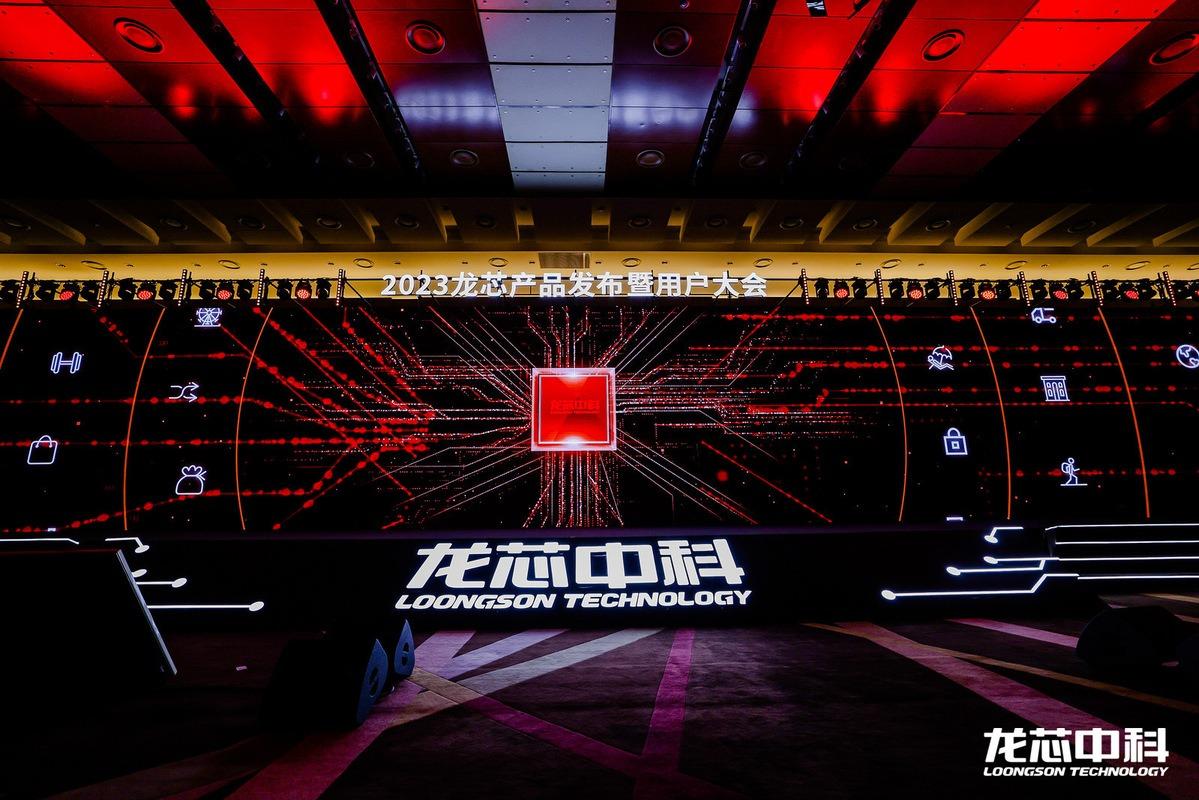 Chinese chip company Loongson Technology unveiled its latest self-developed central processing unit, or CPU, in Beijing, Nov 28, 2023. (PHOTO PROVIDED TO CHINA DAILY)
Chinese chip company Loongson Technology unveiled its latest self-developed central processing unit, or CPU, in Beijing, Nov 28, 2023. (PHOTO PROVIDED TO CHINA DAILY)
Chinese chipmaker Loongson Technology's latest self-developed central processing unit marks a big stride in China's homegrown chip technology, but greater efforts are needed to build a software ecosystem to promote its use, experts said.
The comments came after the company unveiled the Loongson 3A6000 in Beijing on Tuesday, which has performance parity with 14th Gen CPUs unveiled by Intel in clock-to-clock tests, according to the China Electronics Standardization Institute.
Shi Huikang, deputy head of the electronic information department of the Ministry of Industry and Information Technology, said Loongson's latest product marks a new high in the performance of domestic CPUs, and also proves that China has the ability to make first-class products within a self-developed CPU design architecture.
The Loongson 3A6000 is the latest general-purpose processor with the country's own architecture and design. It can run applications on different platforms for complex tasks.
The company also launched a printer main control chip, the Loongson 2P0500, the first of its kind based on an independent command system.
As the core component of a printer, the Loongson 2P0500 is expected to be used more frequently by Chinese printer makers.
Loongson Technology is one of the few Chinese chipmakers to have developed its own processor architecture, rather than relying on licensed designs from foreign companies.
Hu Weiwu, chairman of Loongson Technology, said the fundamental way forward for China's information industry lies in building an independent ecosystem outside of the X86 and ARM systems developed, respectively, by US chip company Intel and UK-based Arm Holdings.
Loongson has received support from major international software open-source communities related to instruction systems. It has also received support from domestic operating systems such as Qilin, Euler, Harmony OS, as well as applications such as WPS, WeChat, QQ, DingTalk and Tencent Meeting.
On Tuesday, ChangXin Memory Technologies Inc, a major Chinese chipmaker also known as CXMT, officially rolled out new memory chips that have been verified by smartphone makers including Xiaomi.
Hu from Loongson has said previously that more efforts are required to support homegrown innovation in leading technology products and services such as chips and operating systems.
Only by putting these technologies into wider commercial use will they have more chances to improve. "The wider the use of these technologies, the better they will become. It will take time, but we are confident about the process," Hu said.
In 2018, domestic processors such as Loongson, ShenWei and Phytium were included in China's government procurement plans.
That was the first time that homegrown chip-driven servers were included in such a proposal, underlying the determination to promote the application of domestic processors, which are making steady progress in performance.
State-owned enterprises and government agencies are important buyers of information technology equipment in China.
China is also pushing to better regulate government procurement plans.
The Ministry of Finance said in 2021 that in government procurement, goods and services either provided by domestic or foreign-funded enterprises would be treated equally, except for those that involve national security and State secrets.


